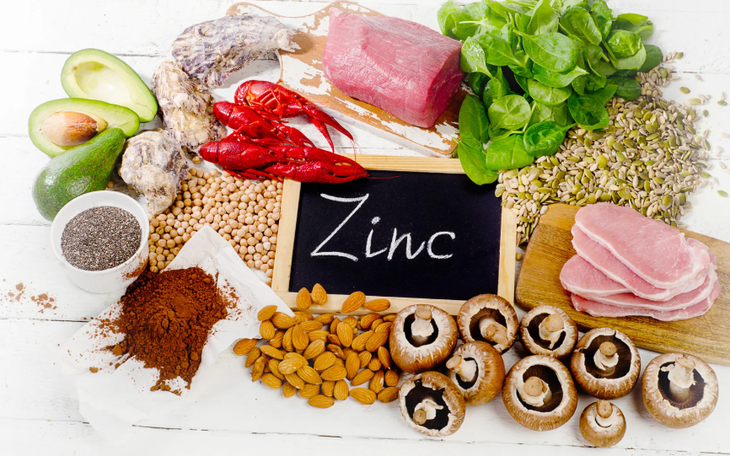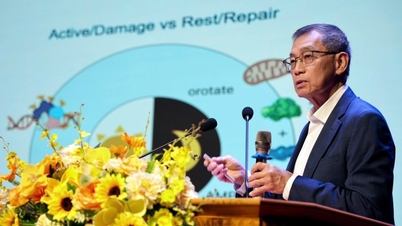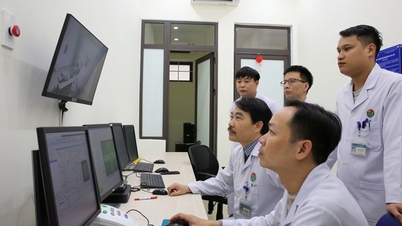
Zinc is one of the small micronutrients but plays an irreplaceable role in life. Although it only accounts for a very small amount in the body, zinc participates in hundreds of key biological processes: from growth, immunity to cell regeneration and maintaining nerve function - Photo: AI
According to the World Health Organization (WHO), more than 17% of the global population is at risk of zinc deficiency, especially in developing countries where diets are poor in animal-based foods. However, not everyone understands the mechanism by which zinc participates in cell activity.
Scientists have long known that zinc binds to a wide range of proteins to ensure their structure and function. About 10% of all proteins in the body require zinc to function properly. But how cells distribute this precious zinc, especially when supplies are limited, has been an unanswered question.
A new study from Vanderbilt University (USA) has helped fill in some of that gap. Scientists discovered a protein called ZNG1, which is considered a "transporter" of zinc inside cells.
This protein acts as a "metallochaperone," which is a protein that specializes in bringing metals, such as zinc or iron, to the right place for other proteins to ensure they function properly.
Remarkably, the gene encoding ZNG1 is present in all vertebrates, from fish to humans, suggesting its long-standing evolutionary role.
ZNG1 has a special relationship with another protein called METAP1, which is responsible for activating a series of essential proteins in the cell. The interaction between ZNG1 and METAP1 is thought to have been maintained for more than 400 million years, suggesting that this relationship is fundamental to life at the molecular level.

Zinc deficiency, even at a mild level, can cause fatigue, slow growth, taste and smell disorders, reduced resistance to infection and even affect brain health - Photo: AI
To investigate further, the team conducted experiments on mice and zebrafish, creating individuals that could not produce ZNG1. The results showed that when zinc deficient, these individuals developed poorly, developed deformities or stopped growing.
Cell-level analysis shows that mitochondria, the cell's "powerhouses," cannot function properly without ZNG1. Under normal conditions, ZNG1 helps to direct limited amounts of zinc to key locations, ensuring that energy production is maintained.
When this protein is lacking, cells are no longer able to use zinc properly, leading to energy disorders and damage to cell structure.
The discovery of ZNG1 opens up a new approach in nutrition and molecular biology research. It shows that the body has a sophisticated regulatory system that helps maintain life even in conditions of micronutrient deficiency.
Scientists believe that ZNG1 not only supports METAP1, but may also help many other zinc-dependent proteins function properly. In other words, ZNG1 acts as a silent gatekeeper, distributing zinc to important protein networks, ensuring that life is not disrupted even when the diet is zinc-poor.
In terms of application, understanding this mechanism can help medicine develop new methods to prevent and treat diseases related to micronutrient metabolism disorders or malnutrition. It also suggests the possibility of early intervention when the body is out of balance with zinc, avoiding prolonged conditions with serious consequences.
While waiting for advances from the laboratory, each person can still proactively prevent zinc deficiency with a balanced diet. Zinc is abundant in seafood such as oysters, crab, shrimp; in red meat, eggs, beans, nuts and whole grains.
Vegetarians or those on a diet that limits animal foods should pay special attention to supplementing zinc through natural foods.
The human body has always been a wonderful adaptation mechanism for survival, but proper nutrition is still the basic foundation of health. The discovery of ZNG1 reminds us once again that sometimes it is the seemingly small trace elements that play a huge role in sustaining life, the delicate link between biology, evolution and human health.
Source: https://tuoitre.vn/thieu-hut-kem-du-o-muc-thap-cung-gay-nhieu-he-luy-voi-suc-khoe-2025102000153426.htm


![[Photo] 60th Anniversary of the Founding of the Vietnam Association of Photographic Artists](/_next/image?url=https%3A%2F%2Fvphoto.vietnam.vn%2Fthumb%2F1200x675%2Fvietnam%2Fresource%2FIMAGE%2F2025%2F12%2F05%2F1764935864512_a1-bnd-0841-9740-jpg.webp&w=3840&q=75)



![[Photo] National Assembly Chairman Tran Thanh Man attends the VinFuture 2025 Award Ceremony](/_next/image?url=https%3A%2F%2Fvphoto.vietnam.vn%2Fthumb%2F1200x675%2Fvietnam%2Fresource%2FIMAGE%2F2025%2F12%2F05%2F1764951162416_2628509768338816493-6995-jpg.webp&w=3840&q=75)








































































































Comment (0)